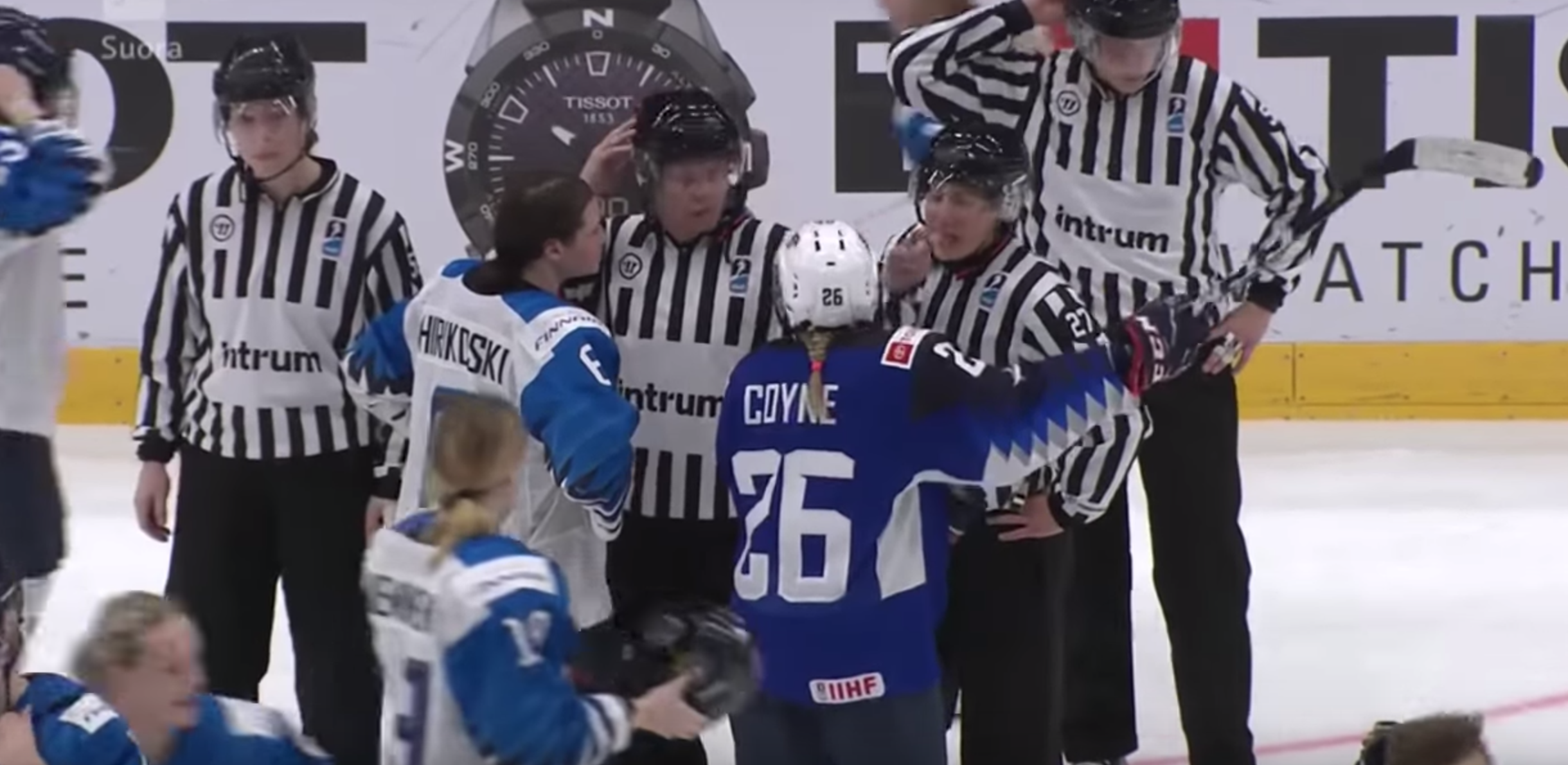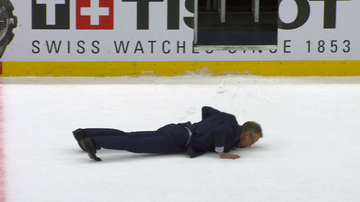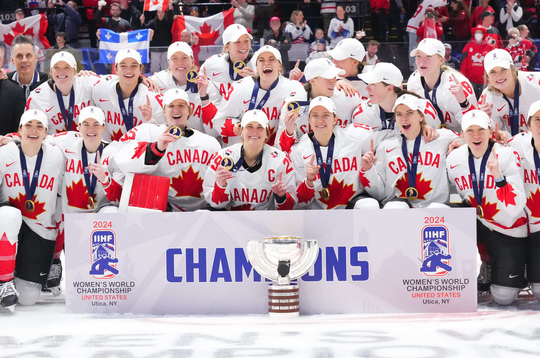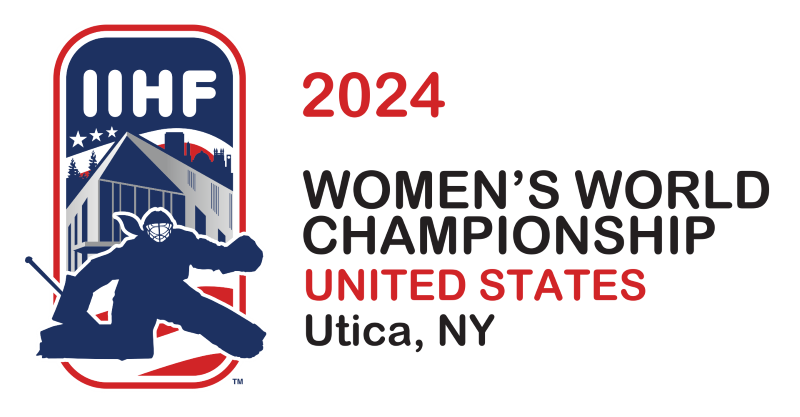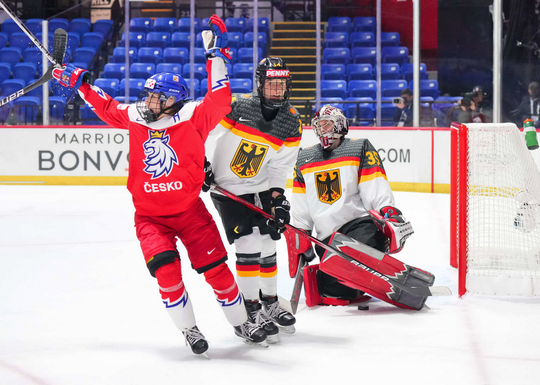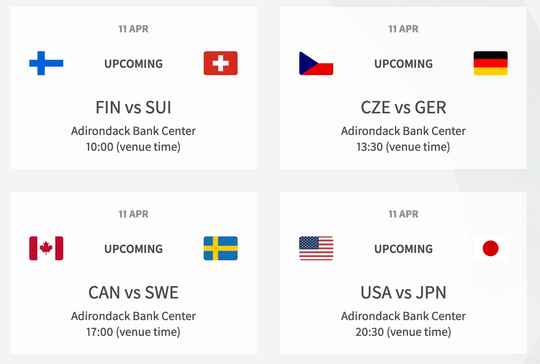Canada vs. Russia (7-0) - Bronze Medal Game
Canada didn't play their best game, but "not their best" was still good enough to take down Russia 7-0 and capture their first-ever bronze medal at the Women's Worlds. It'll now be a long and complicated summer for both Hockey Canada and Canadian women's hockey in general, but they're not without something to show for it.
Russia took 18 minutes in penalties, and mustered only six shots on goal – all of which were saved by Geneviève Lacasse for the shutout.
Jaime Bourbonnais had her best game of the tournament and put home her first-ever goal at Worlds. Loren Gabel and Jamie Lee Rattray were both outstanding, with two goals each. This was a game where Team Canada could really coast on sheer talent, and it seemed like they knew they had it in the bag. They showed confidence with the puck, but not cockiness, and wore down Russia over a solid 60 minutes despite looking like they didn't have much left in the tank mentally.
Russia finishes the Worlds with the worst shooting percentage in the top division, at just 4.23%, and only scored six goals over the course of the entire tournament. They also took the most penalties as a team and had the worst goaltending, with all three goaltenders combining for an 85.48 save percentage and a 5.00 GAA. Despite having some solid talent at every position, there really wasn't much they could do in terms of consistency – and failing to possess the puck for an extended period of time in most of their games is ultimately the cause of a lot of these lackluster numbers. Despite a #4 finish in the tournament, they won only 2 games total, both against Switzerland. It'll be interesting to see what adjustments are made in the coming year for Russia, since they can't be happy with this performance and they certainly had the personnel to do better; even if the wins/loss columns stayed the same, they would have liked to have some closer games.
USA vs. Finland (2-1 SO)
What on earth did we do to deserve this?
One of the greatest games ever played in the IIHF Women's World Championship was reduced to a memory of bizarre overtime officiating and a skills competition that, much like the last time Team USA won a gold medal in a shootout, really didn't reflect the overall tenor of the gameplay through 80 minutes.
Team USA put shot after shot on Noora Räty, but scored on only one, a quick, elite release by Annie Pankowski with less than five minutes remaining in the second period. A gaffe during a line change and some missed coverage by Megan Keller allowed Susanna Tapani to score a goal of her own against Alex Rigsby.
The score would remain knotted, through the third period and deep into overtime, with Räty, her posts, and a little puck luck keeping Finland in the game. Over the years, Finland has often flagged in the third period, and they weren't without issues here – Michelle Karvinen was limited in the third due to a persistent skate blade issue and Jenni Hiirikoski was taking short shifts. But they held on, and even seemed to get better as the third period and overtime progressed, keeping Team USA often to the outside, retrieving loose pucks, and heroically blocking shots.
So it felt like a storybook ending when Petra Nieminen picked up a rebound from a shot by Hiirikoski and shuffled it into a wide-open net after Rigsby had left her crease to try to poke the puck to the corner with about 8 and a half minutes to go in overtime. The bench cleared, gloves and sticks and masks everywhere, and Finland celebrated.
But the play was reviewed, and the subsequent wait for a call from the officials took over twelve minutes. Somehow it was ruled no goal, and Alex Rigsby was also assessed a tripping penalty on Hiirikoski. Here are the relevant rules from the IIHF on the matter in plaintext for your convenience (and you can pore over the entire IIHF rulebook here).
Whatever the official explanation from the IIHF will be later, it wasn't clear why this was the decision handed down. It doesn't seem possible that Hiirikoski could be interfering with Rigsby while also being tripped by her. And in any case, per the relevant sections of the rulebook, Hiirikoski wasn't penalized, which is required in most of the sections that allow goals to be disallowed due to interference. If the only penalty assessed was to Rigsby, it doesn't make sense how the goal didn't count, since the Americans never gained possession of the puck and technically Nieminen was possessing the puck on a delayed penalty.
To the "penalties can't be assessed after video review" crowd: you're right, but that doesn't make the call on Rigsby make any more sense. The call to Rigsby is what throws this whole thing into question, because if the penalty on Rigsby exists, then it ought to be a good goal. But apparently, it is in fact technically possible to have to uphold a penalty call on the ice (the trip to Rigsby) and call a goal back for interference, since no on-ice official called interference (rule 100), but the video goal judge apparently saw it and saw it as not incidental to the point that it necessitated recalling the goal. This is a bizarre ouroboros of officiating that doesn't get any easier to stomach the longer you think about it – but it is what happened.
Finland ultimately was unable to convert despite getting two power plays in the remaining overtime. And the shootout wasn't kind to Räty, as Finland went down 2-0 in the five-round shootout right out of the gate with nifty goals from Amanda Kessel and Annie Pankowski. Kessel was able to patiently put one five-hole after an amazing fake shot, and Pankowski deked Noora out of her net and had plenty of room to slide it in. Susanna Tapani was the shooter for Finland who needed to score to keep it going, but she tried some kind of fancy trick shot – she came in slow, picked up the puck with her stick, and tried to bat it past Rigsby. But Rigsby stood tall on her all the way. It was a hardcore move to pull with the gold medal on the line, but it didn't work.
You can pore over the IIHF rulebook and try to make sense of the call that derailed this whole thing, but you can also wish you could go back in time, clamber behind the benches, and try to get Pasi Mustonen to say into Tapani's ear before she takes the ice in the shootout: "Hey Susanna, keep it simple out there." (But you know, in Finnish – Google says that "keep it simple" in Finnish is "pidä se yksinkertaisena.")
Finland has already said they are filing a complaint about the game, and they should. Team USA won this game in pretty much every official capacity you can think of, and the stat line shows a dominant performance by one of the most potent offenses in hockey history. But, Finland was every inch equal to that in most gameplay situations, especially Noora Räty, who may have played her last game with the Finnish national team. The shootout being the difference maker in this one feels like a big letdown for players and fans alike. And the opaqueness and confusing nature of the decision that snatched the gold medal from the home team is a black mark on the IIHF.
We are all going to dwell on the details (or at least, I'm sure the Finnish players will for at least the next few days), but this was ultimately a historic moment in the sport regardless of the outcome. Finland very nearly toppled a giant. Team USA and Team Canada are no longer unbeatable. The landscape of women's hockey is very, very different than it was just one year ago today, and part of that is Finland showing that they have what it takes to be a top-2 program in the world.
